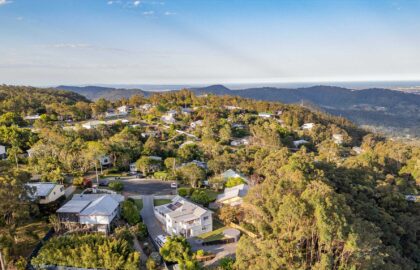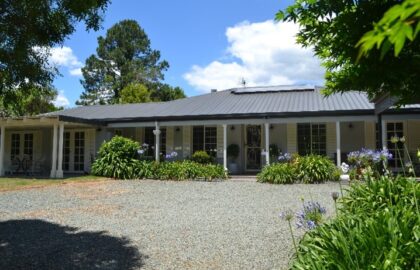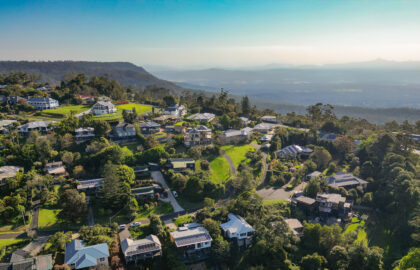
Australia’s property market continued its slow and steady upward trajectory in May, experiencing 0.8 per cent overall growth.
This is the 16th month of price increases and, according to CoreLogic, the largest gain since October last year. On average, homes have been increasing in value by $12,000 per month in metropolitan areas.
Capital city property results
Perth, Adelaide and Brisbane experienced the highest growth in May, and Brisbane’s popularity since the pandemic and in the leadup to the Olympics has seen its average home value overtake Melbourne, where prices have been all but stagnant over the last month.
In May, the only two capital cities to experience a decline in values were Hobart and Darwin.
To break down the numbers:
- Sydney: 0.6 per cent monthly growth, 7.4 per cent annual growth | Average value: $1,156,020
- Brisbane: 1.4 per cent monthly growth, 16.3 per cent annual growth | Average value: $843,231
- Melbourne: 0.1 per cent monthly growth, 1.8 per cent annual growth | Average value: $780,437
- Adelaide: 1.8 per cent monthly growth, 14.4 per cent annual growth | Average value: $757,448
- Perth: 2.0 per cent monthly growth, 22.0 per cent annual growth | Average value: $736,649
- Hobart: -0.5 per cent monthly growth, -0.1 per cent annual growth | Average value: $655,170
- Darwin: -0.3 per cent monthly growth, 3.5 per cent annual growth | Average value: $502,120
- Canberra: 0.5 per cent monthly growth, 2.0 per cent annual growth | Average value: $840,100
Meanwhile, auction volumes have been trending higher in comparison to 2023, with 28% more homes going to auction than this time last year. Reports say clearance rates are holding relatively steady in the capital cities.
Regional property values
Reports say dwelling values across regional Australia increased by 2.1% in the three months to April 2024. This is the fastest quarterly growth rate in almost two years, with regional areas outperforming their metropolitan ‘cousins’.
- Regional NSW: 0.4 per cent monthly growth, 4.3 per cent annual growth
- Regional Qld: 1.1 per cent monthly growth, 11.8 per cent annual growth
- Regional Vic: -0.2 per cent monthly growth, -0.6 per cent annual growth
- Regional WA: 1.8 per cent monthly growth, 14.8 per cent annual growth
- Regional SA: 1.4 per cent monthly growth, 10.6 per cent annual growth
- Regional Tas: -0.2 per cent monthly growth, 0.4 per cent annual growth
CoreLogic’s recent Regional Market Update highlights WA areas as experiencing some of the best results, including the southern town of Bunbury, which achieved growth of over 20 per cent and experienced the shortest ‘days on market’ average of just 14 days. Research found that across the largest 50 non-capital markets, 47 saw rents increase over the three months to April, while 48 recorded an annual increase in rental values.
Property outlook for the remainder of 2024
Predictions for the remainder of the year have largely depended on interest rates coming down but inflation figures coming in slightly higher than expected for April means the RBA is not expected to decrease rates as early as hoped.
Higher-than-average rates and uncertainty over when they will start to drop is helping to keep a lid on property price increases. However, factors such as high migration, low building approvals and existing housing shortages are saving the market from experiencing any major drops.
What’s your move?
Strong prices mean now is a good time to sell in Australia, particularly if you are planning to downsize. Reach out to discuss a strategy for your sale.








